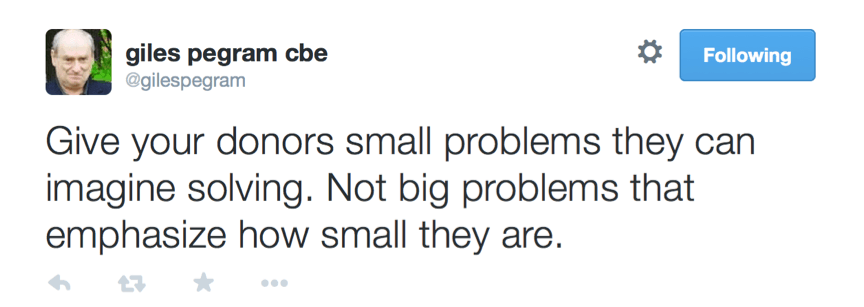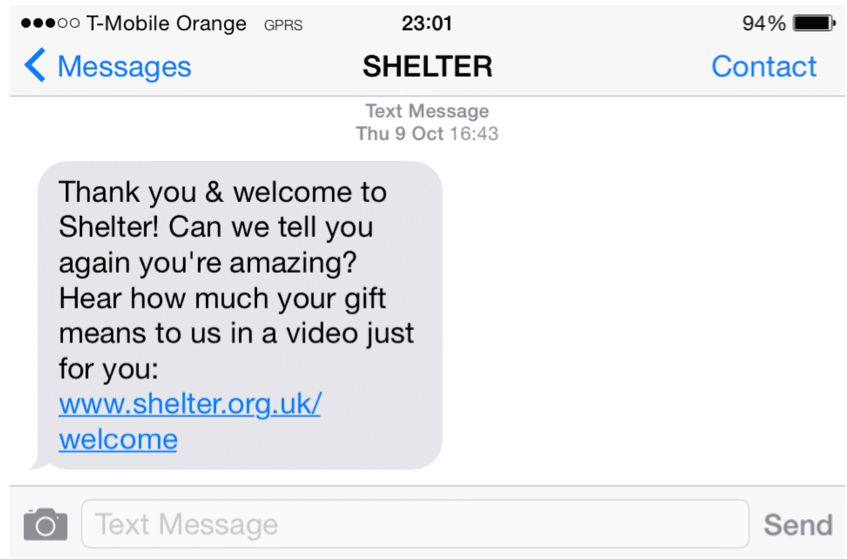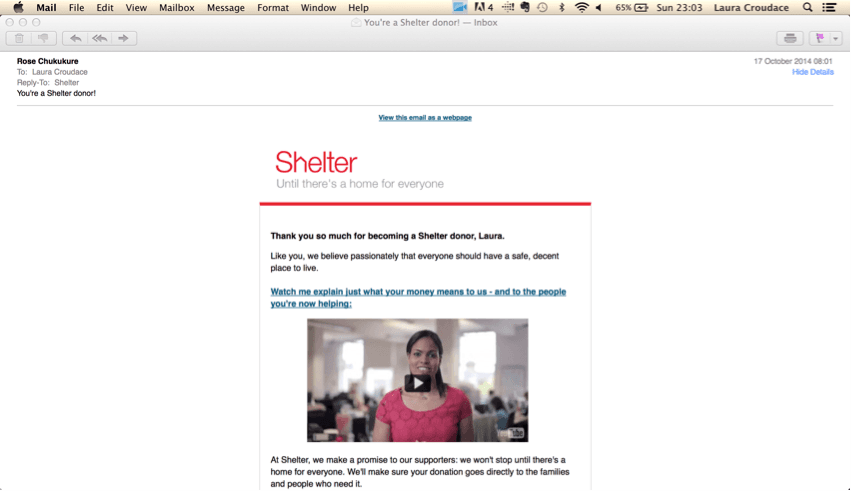Why I support 12 different charities
- Written by
- Laura Croudace
- Added
- June 04, 2015
The reason I support charities has changed slightly since I became a fundraiser. I started donating to charity each birthday when I was five years old. I remember making the connection between giving and the money going on to help people. As a small child I sat in the school assembly wondering why everyone else wasn’t donating, because by doing something as simple as donating five pounds, you feel lovely and are able to be a part of something so important.
When I realised in my school assembly that there were children out there, right now, the same age as me, going hungry. I couldn’t get my head round it. Why were these children starving? Did their mummies and daddies not care? Was it because there was no food in their town? I just couldn’t understand. It played on my mind for years and frustrated me.
Frustration can be a good thing for fundraisers though. Think of it like this; we have so many supporters who believe in our cause or the movement we are leading. They are frustrated and want to make a change, but often they feel engulfed at the thought of doing it alone. I think Giles Pegram was very right when he tweeted this:

That’s where we fundraisers step in. We help people by matchmaking people to our projects that will make a difference, whether it be our environment, the arts, animals, or children.
As I mentioned, I have favourite long-standing charities that I help each month and then sporadically because of the sadness and frustration I feel. Even now I get the warm and fuzzies after 24 years of giving to the same charities. I actually have a special donation, which I save for my birthday. I save this special donation, as it is a gift to me. It might sound odd, but you’ll understand why when you see it, you can read about here. It never fails to make me feel lovely.
The fact that my long-standing charities have survived years of me watching them closely must mean they’re doing something right.
Over the years, the way I’ve viewed charities has changed so very much, especially because I get immersed in designing direct mail campaigns myself. That said, I still open mail, get goose bumps and often cry at the sadness or beauty written on the paper.
We donors don’t want to be swept off out feet when we open a direct mail letter – ok, maybe we do a little – the main thing we want is to feel connected to the cause, person, or beneficiary.
As fundraisers, it’s obvious that we are going to be incredibly loyal to the cause we fundraise for. That said, in my opinion focusing inwardly is not always the best way to focus your energy, serve your organisation and, most importantly, gain the best results. Also, if you’re hungry to learn, as I am, it’s not the best way to learn.
So what is my answer? As a fundraiser, I am now using other charities to better my position – and my results. I think our biggest asset is our emotional gauge. If you can learn or stay open to what is going on around you and let your mind and heart stay open to lots of causes you will become a better fundraiser.
If you want inspiration on a regular basis, my advice would be to let your emotional senses be your guide. If something moves you, become a regular donor to that charity.
It’s that simple. I want direct mail steadily pouring through my letterbox, I want my email inbox full of inspiring fundraisers’ emails. I want to learn how to recycle that feeling they gave me, use it to gather new donors and make my donors understand what amazing work they’ve empowered us to do.
Recently, I became a monthly donor to Shelter. I have been well aware of Shelter’s good work due to some personal struggles I’ve been though. Retrospectively, I should have been a Shelter donor already, but they fell through my emotional net.
I’m pleased to say that this has changed recently. A few weeks ago I was strolling through Birmingham on my way to visit one of my corporate donors in the city centre, when a street fundraiser from Shelter approached me. Ellie was obviously freezing. It was raining, cold and miserable yet Ellie was so upbeat. I admit I can’t remember the her exact opening line, but I believe it was something as simple as ‘do you know that hundreds of people will be sleeping rough tonight, with your help we can work on this’. Ellie made me feel that I could make a difference that night. Instant gratification mixed with a heart-breaking feeling for those sleeping rough – quite a powerful combination.
We chatted for a few minutes, and being open and interested in learning from people, I asked Ellie if I could I stay in touch with her. I explained I’d love to hear about her journey as a fundraiser. I knew that Ellie would learn things out in the streets that I wouldn’t ever learn working from an office. That is my number one tip – stay in touch with other fundraisers that you meet, whether it is at events or in the street when you make a donation, or become a monthly donor.
So, back to why I’m supporting charities for different reasons these days. About an hour after leaving Ellie, I received a text from Shelter, thanking me for donating to them – which made me feel great.

But, on top of that I got a couple of emails a few weeks later, which turned out to be the best donor care I’ve ever received. A short video from the team at Shelter, thanking me.
I wasn’t in ‘fundraiser mode’ when I read it, I was actually out shopping, but I kept thinking about it and I watched it again the next day. That was when it hit me – they made me feel valued and a part of the organisation. I realised this was a very fortunate lesson to learn from. This was a course in how to look after donors well, from the off. This was a lesson that money can’t buy. You’ve just got to follow your emotional barometer and hope that by supporting new charities they will teach you something new.
I believe they will. They will either ‘wow you’ and make you feel warm and fuzzy. Or you’ll delete the email, or sigh, thinking that direct mail is so pointless – at that point STOP. Get the email out of the trash bin and annotate it: things you didn’t like and the things you’d do better. Save the original and your annotated copy and look at both again in a few weeks, do you still feel the same about the notes?
So, I saved the wonderful Shelter email and plan to learn from it when I need more inspiration, or when I feel I have dried up.
Remember I said I want direct mail steadily pouring through my letterbox?
Last Friday, about a month after, I received a well-thought-out piece of paper through the post, from Shelter – a Shelter newspaper explaining where my money will be used.
If I wasn’t a donor, I couldn’t actively go out and buy this kind of inspiration or fundraising know-how.
My advice, if you can afford to: become a donor to as many inspirational charities as you can. I have also started looking at fundraisers I really admire and setting up a direct debit to their organisation, or sending them a good old-fashioned cheque.
It’ll pay off and you’ll feel awesome, not only because you’re supporting amazing work, but also when your hard work is recognised, when you have success and donations start rolling in, like I did this week!
Happy donating!
© Laura Croudace 2015

















